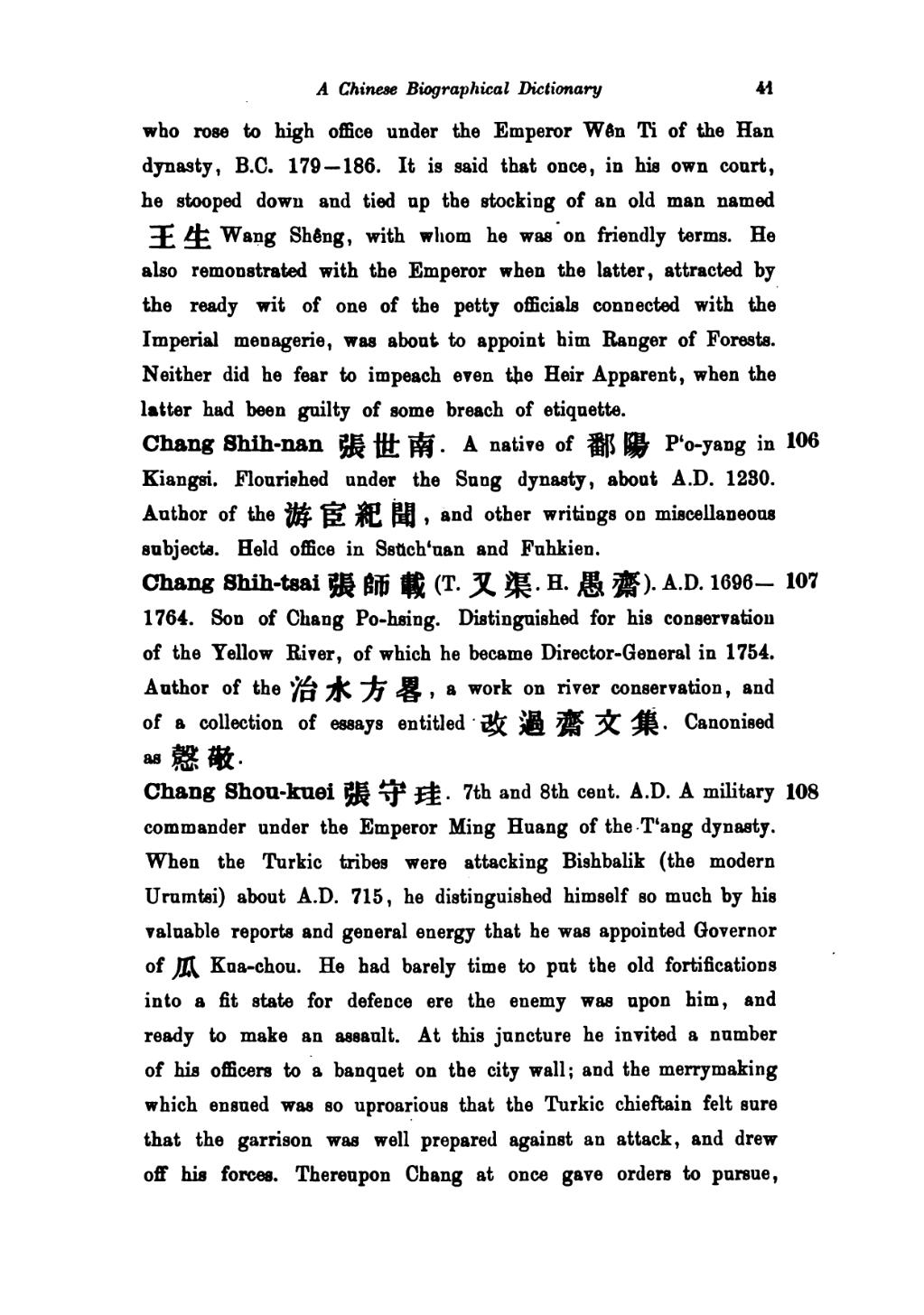who rose to high office under the Emperor Wên Ti of the Han dynasty, B.C. 179 — 186. It is said that once, in his own court, he stooped down and tied up the stocking of an old man named 王生 Wang Shêng, with whom he was on friendly terms. He also remonstrated with the Emperor when the latter, attracted by the ready wit of one of the petty officials connected with the Imperial menagerie, was about to appoint him Ranger of Forests. Neither did he fear to impeach even the Heir Apparent, when the latter had been guilty of some breach of etiquette.
106
Chang Shih-nan 張世南. A native of 鄱陽 P'o-yang in Kiangsi. Flourished under the Sung dynasty, about A.D. 1230. Author of the 游宦紀聞, and other writings on miscellaneous subjects. Held office in Ssŭch'uan and Fuhkien.
107
Chang Shih-tsai 張師載 (T. 又渠. H. 愚齋) A.D. 1696 - 1764. Son of Chang Po-hsing. Distinguished for his conservation of the Yellow River, of which he became Director-General in 1754. Author of the 治水方畧, a work on river conservation, and of a collection of essays entitled 改過齋文集. Canonised as 慤敬.
108
